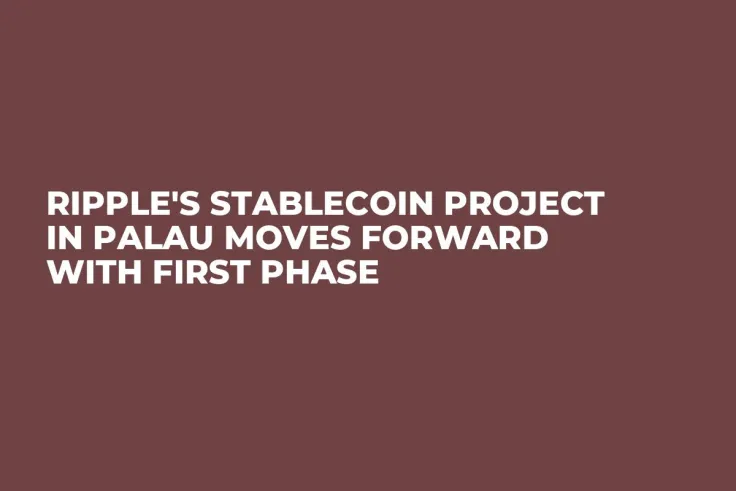
Disclaimer: The opinions expressed by our writers are their own and do not represent the views of U.Today. The financial and market information provided on U.Today is intended for informational purposes only. U.Today is not liable for any financial losses incurred while trading cryptocurrencies. Conduct your own research by contacting financial experts before making any investment decisions. We believe that all content is accurate as of the date of publication, but certain offers mentioned may no longer be available.
Ripple and the Republic of Palau jointly launched a stablecoin pilot in July of this year, after both began collaborating on exploring potential use cases in 2021.
The pilot program was planned to roll out in phases, with the first phase involving participation from about 200 government employees and local merchants in Palau.
This was in keeping with the primary goal of the Palau Stablecoin Pilot Project, which was to evaluate various use cases and proposed benefits delivered by the Palau Stablecoin in a controlled setting and during a determined period.
Now, five months after the announcement of the stablecoin pilot, Jay Hunter Anson, the program director and PSC distribution officer for the Palau stablecoin pilot, took to X to share the progress made so far.
To this end, Anson shared a newly released report for the recently completed phase one of the Palau Stablecoin (PSC) Program.
The PSC phase one scope was planned to allow up to 200 employee volunteers from the executive branch of the government to use the Palau stablecoin to make purchases from at least three voluntarily participating local retailers.
The Palau stablecoin was issued by the Ministry of Finance of the Republic of Palau on XRP Ledger (XRPL) and fully collateralized with USD cash deposits.
One hundred sixty-eight volunteers fully participated in the pilot out of a total of 223 Palauan citizens and residents who initially volunteered to participate.
According to the report, Palau Stablecoin Program phase one was a success among both volunteers and retailers, with both responding positively to the value proposition offered by the Palau stablecoin (PSC) as a digital payment system.
The majority of survey respondents said they would favor PSC use if the Palau government approved national deployment.
On what comes next, the report states that future phases should focus on developing a solid ecosystem that combines financial institutions, regulatory agencies, legal frameworks, participating businesses and users into the stablecoin network.

 Dan Burgin
Dan Burgin Vladislav Sopov
Vladislav Sopov